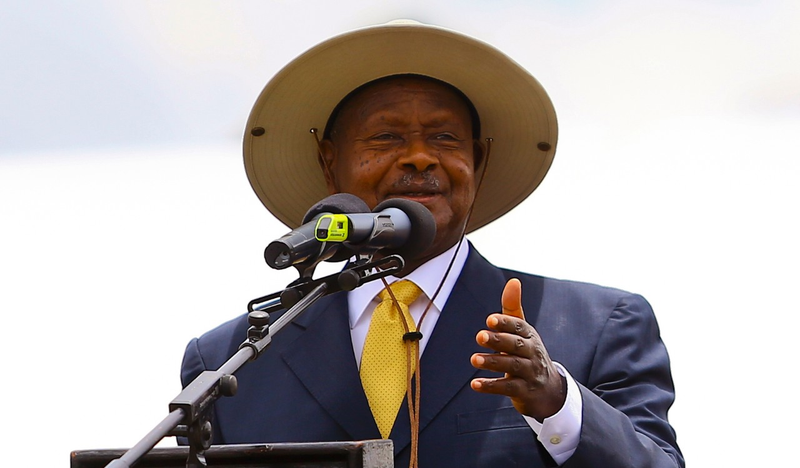
President Yoweri Museveni has urged Libyan authorities to ensure that all citizens are actively involved in rebuilding peace in their country by holding transparent and inclusive national elections.
During a high-level meeting with a Libyan delegation, Museveni underscored that lasting peace in Libya depends on the will of its people, emphasizing that national stability can only be restored through democratic participation.
“Libya belongs to the Libyan people," Museveni said. "All the owners of the country, every Libyan, must be asked, through peaceful elections, what should be done.”
He cautioned against political exclusion, arguing that internal disputes among leaders should not prevent the people from having a say in how they are governed.
“If there are arguments among leaders, why not ask the people, why should anyone just take over my home as if I have no say?” he wondered.
Museveni expressed concern over Libya’s prolonged political divisions, nearly 15 years after the fall of former President Muammar Gaddafi. The country remains split between two rival administrations: the internationally recognized Government of National Unity in Tripoli and the Government of National Stability based in Benghazi.
This enduring political stalemate, he noted, has hindered governance, disrupted service delivery, and undermined national security—leaving ordinary Libyans trapped in a cycle of instability. Museveni called this ongoing division unjust to the Libyan people.
“Here, we had bad leaders like Idi Amin, but all their supporters took part in the elections because we have no right to remove them—it’s their country; they should continue with their normal rights,” he said, drawing a comparison to Uganda’s own experience with post-conflict reconciliation.
President Museveni also acknowledged ongoing cooperation with Egypt in seeking a peaceful resolution for Libya.
“I am glad because I agreed with President Al-Sisi to work together, but I hadn’t followed up, now, your visit has encouraged me," President Museveni remarked. "If all Libyan factions agree to have elections for all Libyans, not a few, it will stop ruining of the country.”
He reiterated that African nations have a responsibility to take the lead in resolving internal conflicts across the continent and promoting unity.
The visiting Libyan delegation was led by Mr. Musbah Abouksham, Head of the General Assembly Department and Foreign Minister, who conveyed greetings from H.E. President Mohamed Al-Menfi, President of the Presidential Council of Libya.
Abouksham commended Uganda for its consistent support of peace and stability efforts in Africa. He affirmed that the Government of National Unity is dedicated to achieving national reconciliation through fair and open elections.
“We need your advice and support for our politicians in Libya; any initiative to ensure Libyan citizens’ participation in elections will be highly appreciated,” Abouksham said, adding: “An African leader like Yoweri Museveni is highly respected by all Libyans, east or west, because you have never intervened negatively in Libya.”
Reflecting on his personal ties to Uganda, Abouksham shared that he spent part of his youth in the country while his father served as a Libyan diplomat.
“Part of my education and culture was shaped here,” he said.
He also conveyed the delegation’s best wishes to President Museveni for the upcoming 2026 elections, noting Libya’s interest in strengthening bilateral investments.
“We are sure that you are the best choice to lead Uganda in the coming period, and this victory will not only be for the Ugandan people, but also for the entire African people,” Abouksham stated.
The Libyan delegation also included Fatalla Elzuni, Minister for Youth and special envoy of the Prime Minister to Africa; Ibrahim Ahmed Sultan, Libya's Ambassador to Uganda; and Sofian Belkher, Director of the International Organizations Department.
Museveni’s message echoed the broader objectives of the African Union and the Non-Aligned Movement, which advocate for homegrown approaches to resolving political crises and fostering sustainable peace.

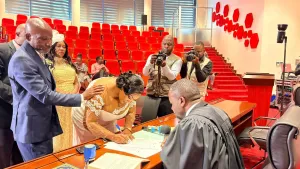
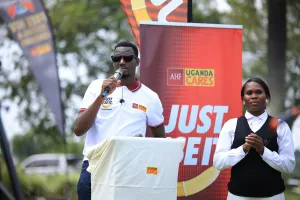

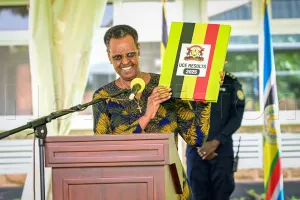
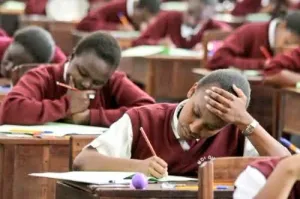






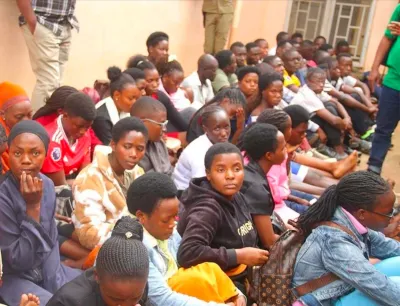
Linda Munyana
Leave a Comment
Your email address will not be published.